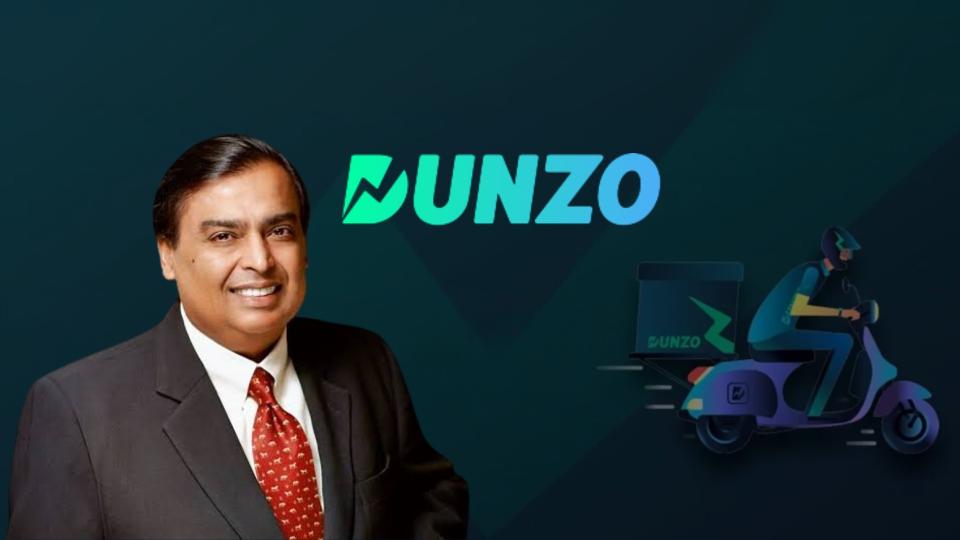Reliance Retail, the retail arm of Mukesh Ambani’s Reliance Industries, has officially written off its ₹1,645 crore investment in hyperlocal delivery startup Dunzo, according to the company’s FY25 annual report.
The decision highlights the risks of high-burn, high-growth models in India’s quick commerce sector — an industry that has seen rapid expansion, intense competition, and equally fast market corrections.
Dunzo’s Journey: From Errands to Instant Grocery Delivery
-
Founded: 2014, Bengaluru
-
Initial Model: Concierge-style delivery for errands, couriers, and local tasks
-
Funding Raised: Over $450 million from marquee investors like Google and Lightbox Ventures
-
Major Pivot: Launch of Dunzo Daily in the 15–20-minute grocery delivery segment
-
Reliance Retail’s Investment: Led a $240 million funding round in January 2022, acquiring a 26% stake
Dunzo’s early charm lay in its quirky brand voice, fast deliveries, and strong urban presence. However, the shift to quick commerce marked the beginning of a cash-intensive growth phase.
The Cost of Hyper-Growth
Dunzo’s pivot to instant grocery delivery came with heavy costs:
-
Monthly Cash Burn: Reportedly over ₹100 crore at peak operations
-
Marketing Spend: High-profile IPL sponsorships and nationwide campaigns
-
Operational Expansion: Aggressive entry into multiple cities without profitability
Despite building strong brand recall, the unit economics didn’t support the scale. The high cost of customer acquisition, low margins, and intense competition made the model unsustainable.
Funding Winter and Operational Decline
By 2023, the funding winter hit Indian startups hard. Dunzo faced several challenges:
-
Mass layoffs to reduce costs
-
Delayed salary payments for employees
-
Missed vendor payments creating supply chain stress
-
Reduced service coverage in both courier and grocery verticals
The Final Blow in 2025
-
Shutdown: App and website went offline in early 2025
-
Leadership Exit: Co-founder & CEO Kabeer Biswas resigned to head Walmart-owned Flipkart’s quick commerce venture Flipkart Minutes
This marked the end of Dunzo’s presence in India’s quick commerce race.
Reliance’s Strategic Shift in Quick Commerce
Rather than relying on third-party platforms, Reliance Retail is now:
-
Leveraging its offline retail footprint
-
Setting up dark stores in underserved pin codes
-
Building an integrated quick commerce network for tighter operational control
Key Takeaways for Startup Founders
-
Sustainable Growth Over Speed: Expanding without profitability can lead to collapse.
-
Adaptability is Critical: Market conditions and funding trends can shift rapidly.
-
Partnerships Are Not Permanent: Corporate backers may pivot strategies if results lag.
The Dunzo story is a reminder of how quickly fortunes can change in the startup ecosystem. As Reliance builds its own infrastructure, the race for 10-minute delivery dominance in India remains wide open.
Innovent Blog is your go-to source for startup news, funding updates, and insights from India’s growing entrepreneurial ecosystem.

